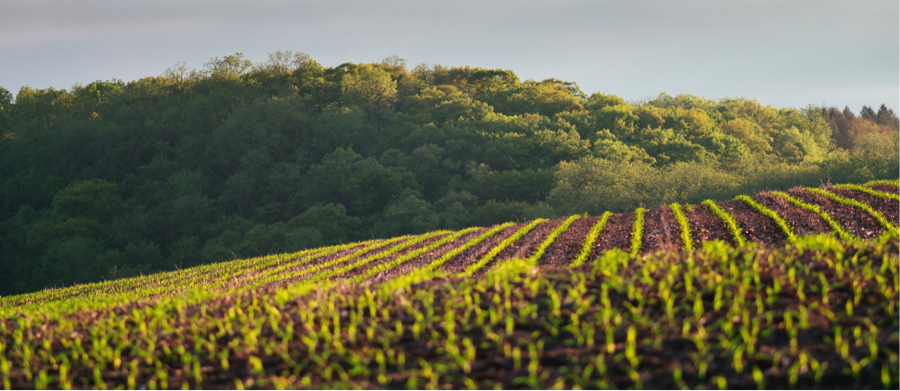The existing food system is failing us – failing farmers, consumers, and the environment. Regenerative agriculture offers a path forward to address many of these systemic failures, but for now, it represents only a tiny fraction of our food system. Capital, resources, and innovative thinking are needed to scale regenerative and drive a shift away from the dominant paradigm. Fortunately, an increasing number of investment vehicles are rising to the challenge and opportunity that regenerative food systems investment presents.
Trailhead Capital is a leader among the new crop of investors designed to drive capital and impact to advancing regenerative food and agriculture. Launched in September 2020, their Regeneration Fund I targets Seed and Series A stage investments into companies that use innovation and technology to address inefficiencies in our global agricultural system.
This impressive start is a direct result of an approach that sets Trailhead apart from other food and ag venture capital firms. In a food system that is increasingly siloed and divisive, Trailhead has created a regenerative thesis that aims to build a bridge between the old and new paradigms in food. In a venture capital world known for holding information close to the chest, picking winners and losers, and selectively only engaging certain incumbents – Trailhead is openly sharing their approach, betting on regenerative pioneers with innovative solutions, and planning to reward their efforts with incumbent adoption and acquisition.
The Approach:
For Trailhead’s team of Managing Directors – including Bobby Pelz, Mark Lewis, Pete Oberle, and Tripp Wall – this strategy has turned into a passionate focus on transforming the food system from extractive and damaging to regenerative and healing.
Wall explains that in contrast to the current system, his vision for a healthy food system is, “a production system of mutual and exhaustive benefit, where the highest value structures surround fertility and nutrition per acre. This circular system de-commoditizes our nourishment and health, and values the patient cycles of nature’s genius.”
At the heart of this vision for a new food system is soil health, which, according to Lewis, “represents perhaps the best strategy for both mitigating and adapting to climate change and human disease.” It also serves as the foundation to their systems approach.
“We screen all of our originated opportunities through a regenerative lens. Land steward income and nutrient-dense, fresh food with the profound connection of soil health sits as our guidepost. Every portfolio company ties back to rebuilding Earth’s fertility, maximizing human health, and reducing waste,” explains Wall.
The result is a portfolio of companies that span the agri-food value chain including those providing on-farm technology like Vence (virtual fencing) and EarthSense (autonomous robotics), and off-farm technology like Telesense (grain quality monitoring software) and HowGood (product sustainability database), all the way to consumer-facing innovations like White Leaf Provisions (consumer food brand).
Building a Bridge:
So how do you transform investment into these individual companies into a larger-scale shift of the entire food system?
For Trailhead, the answer to this question is, by building bridges.
The firm sits at a unique intersection of Big Agriculture and the agents of change in the new regenerative paradigm. With its connectivity to McDonald Pelz and its clients – including the dubious A,B,C,Ds (otherwise known as commodity traders ADM, Bunge, Cargill, and Louis Dreyfus) – Trailhead has access to the current controlling interests in global land and agriculture.
“The established players have the expertise, sales channels, and balance sheets to turn the ship,” Lewis explains. “More and more players in conventional agriculture are realizing we cannot continue in the existing paradigm in the 21st century, so they are motivated to evolve or die.”
Trailhead aims to help them evolve toward regeneration. With a network of advisors and thought leaders in the regenerative space, the firm invests in disruptive technologies, business models, and entrepreneurs to whom they can offer help gaining access to the established players. Those companies, in turn, may become their biggest customers and can become their exit strategy.
For Trailhead’s portfolio companies this strategy has played out in several ways. For example, Telesense (grain quality monitoring software), is working with most of the biggest global grain players, many of whom were introduced by McDonald Pelz. EarthSense (autonomous robotics) is working with Bayer, Corteva, and BASF on the seed breeding phenotyping business. The team is also connecting Earthsense to Cargill, General Mills, with the thinking that EarthSense can be the low-cost provider to help scale cover cropping. HowGood (product sustainability database) is working with several of the largest CPG brands to help them better understand and clean up their supply chains. The team is actively introducing Vence (virtual fencing) to large ranchers and feedlots who are seeking enabling technology to implement holistic cattle management at scale for grassfed beef production. And White Leaf (consumer food brand) has the potential to be acquired by a major CPG brand who wants to extend into this biodynamic/regenerative/pure ingredient category.
“We believe that the urgency of the environmental and human health crises require a big tent strategy,” says Wall. “This tactic requires that we compel entrenched commercial food and ag interests with empirical economic benefits, longer duration stewardship, and new science for human and planetary health.”
What’s Next?
There’s no doubt that this level of food system transformation will take significant time and resources, but for Trailhead there is no letting up. They are targeting a final close for Regeneration Fund 1 in December 2021.
“The alternative of staying on our current path of industrial food and ag is untenable,” says Lewis. “People want to be healthy and resilient. Ecosystems want to be diverse and symbiotic. The technology revolution hasn’t been very well applied to food and agriculture yet.”
Trailhead is building the bridges to help change this.
—
You can learn more about Trailhead Capital here.
Sarah Day Levesque is Managing Director at RFSI & Editor of Raising Regenerative News. She can be reached at sdaylevesque@questorcorp.com.
